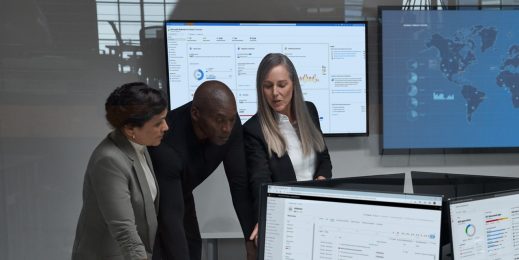
Winning Teams: how Queensland ambos scored top marks at the Commonwealth Games
More than 6,600 athletes and officials, 15,000 volunteers, and 1.5 million spectators spread across 18 venues, competitors from 71 countries and territories, taking part in 18 events, and seven para-sports.
What could possibly go wrong?
That was precisely the question that the Queensland Ambulance Service (QAS) asked itself in the run up to the 2018 Commonwealth Games which were held on Queensland’s Gold Coast.
The Queensland Ambulance Service (QAS) is one of the largest ambulance services in the world, providing crucial, often life-saving, support to 5 million people spread over Queensland’s 1.7 million square kilometres.
When the Gold Coast was selected to host the Commonwealth Games – the largest event Australia will host this decade – QAS performed a critical role, providing all the pre- hospital healthcare and patient transport for the Games.
The eyes of the world would be on the 490 QAS staff on the ground and their 111 strong fleet of vehicles spread across 4,144 operational shifts. All up, QAS fielded 652 accredited officers to keep the world’s elite athletes and spectators healthy. At its most extreme, that meant providing first line support for up to 60,000 people in a single venue and making sure every injured athlete had first-class first responder medical attention.

QAS’ experience supporting Queenslanders and visitors during Tropical Cyclone (TC) Debbie provided the Service with an acute understanding of the challenges associated with keeping a large community of staff and executives informed and supported no matter the time of day, and regardless of their location.
In May 2017 the post-incident assessment for TC Debbie was released which identified difficulties with staff welfare, HR, and deployment processes along with the need for real time information and instant communications with people on the front line.
It was a spur for QAS which accelerated the push for a front-line communications platform. The QAS explored other platforms and apps, but all had limitations. Meanwhile QAS knew it already had access to Microsoft Teams through its Office 365 licence. The solution was right there within its grasp. Three months of intensive effort by QAS and Microsoft working together and the front-line platform was in place, ready for the Games.
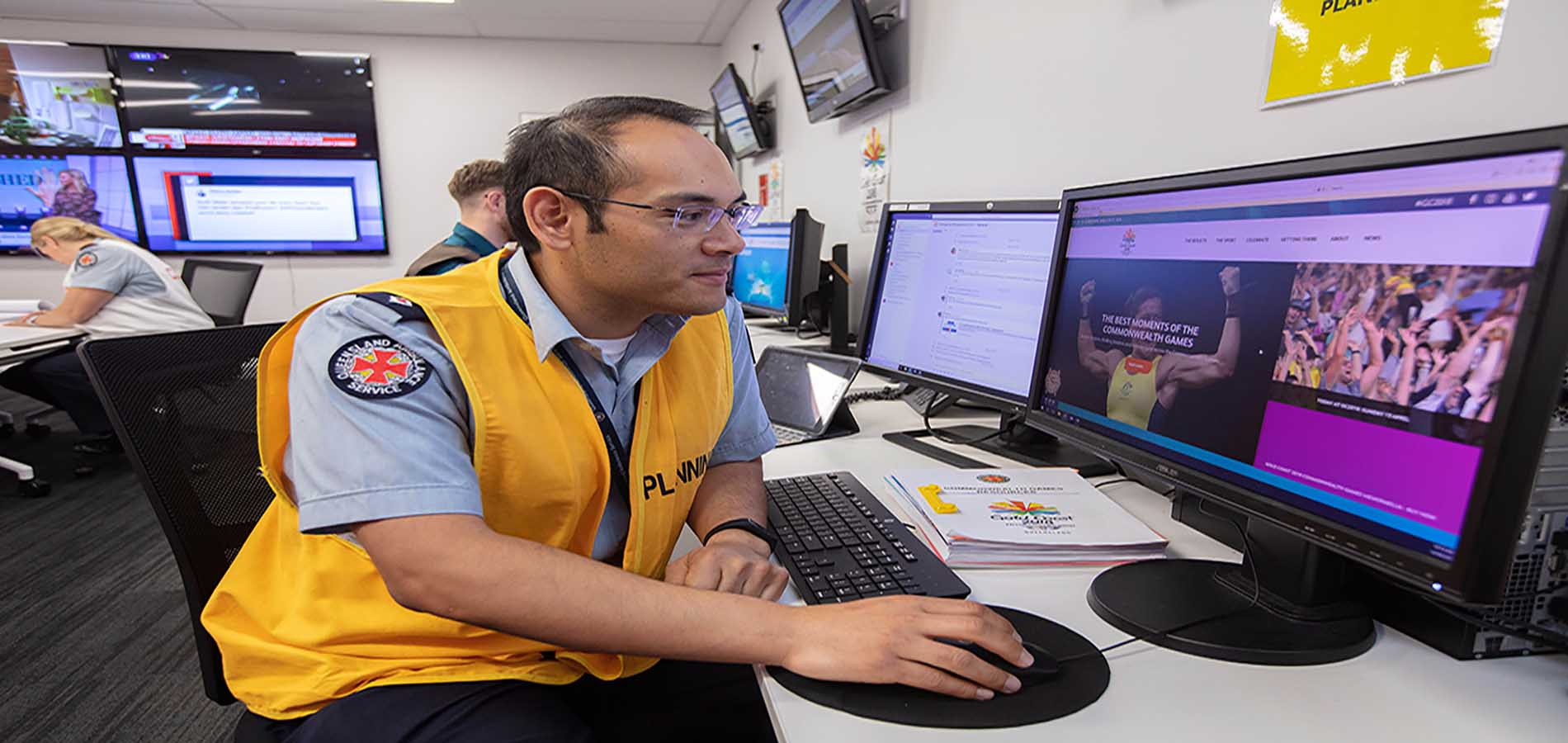
Game on
Ahead of the Commonwealth Games, QAS had already begun a transformation program geared at boosting its capability and improving response times, while navigating the cost versus efficiency challenges of serving a population that is both growing and aging.
Leveraging Microsoft 365 solutions including Office 365, Microsoft Teams and SharePoint has proved cost effective and efficient for the QAS – and is fostering a completely new way of working. Instead of being required to attend command centres for scheduled briefings, staff can receive instant updates as soon as they are available on any device. Teams of people working together can collaborate easily with one another using the highly intuitive and flexible Teams platform.
With the eyes of the world on Queensland during the Commonwealth Games, there was an opportunity to showcase QAS best practice and also put the digital platform developed to support QAS paramedics, executives and staff, through its paces.
The stakes were high – but the possibilities immense.
QAS needed an affordable, scalable solution available to authorised users anytime, anywhere. It needed to be able to communicate real-time logistics information from the workforce planning unit to paramedics and supervisors individually. It also needed to be able to group individuals so that it could communicate, for example, to all the paramedics at a particular venue.
At the same time, central command needed to be able to conduct remote briefings with supervisors or staff at particular venues, particularly at the start of their shift.
Communication had to be two-way – and it was also important that all the data from interactions among personnel be securely stored, as required.
Monica Farrow (MF), Executive Manager Operations, Emergency Operations; Chris Perera (CP), Senior Operations Supervisor; and Christine Stower (CW), Director ICT Governance, Strategy and Performance describe their journey to date.
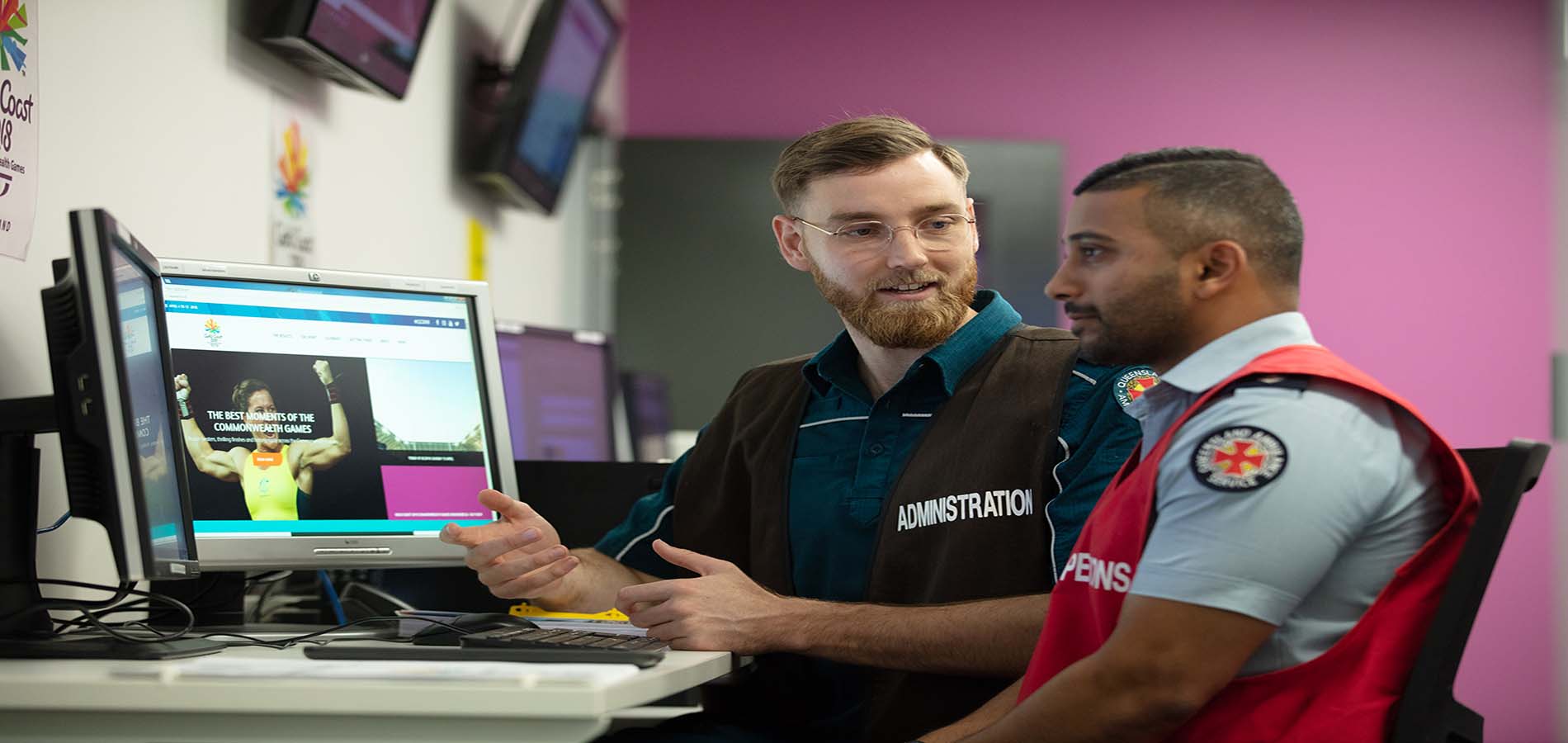
As one of the biggest ambulance services in the world, with experience tackling everything from tropical cyclones, floods, fires and now the Commonwealth Games – how important is technology to the smooth functioning of the QAS?
MF: It’s very important. The vision of an infield application that could be used to update real-time information was birthed off the back of TC Debbie so that we could disseminate real-time transport, accommodation and rostering. It could be for immediate use or held in a repository for policy and procedure with regards to deployment of equipment. It also needed to be flexible enough that we could upload real-time information with regard to briefing around weather events, disasters or other incidents.
CS: It was essential that the particular solution was based on business requirements. It was about communicating real-time logistics information from the workforce planning unit to paramedics and supervisors individually. This included information on rosters, updates to logistics, pickup locations and accommodation information.
It was also to communicate to predefined groups based on specific criteria, for example to supervisors, individual venue groups, outside of venue groups, operations centres and logistics teams. The intention in the beginning was to also conduct remote briefings via the supervisors with the paramedics.
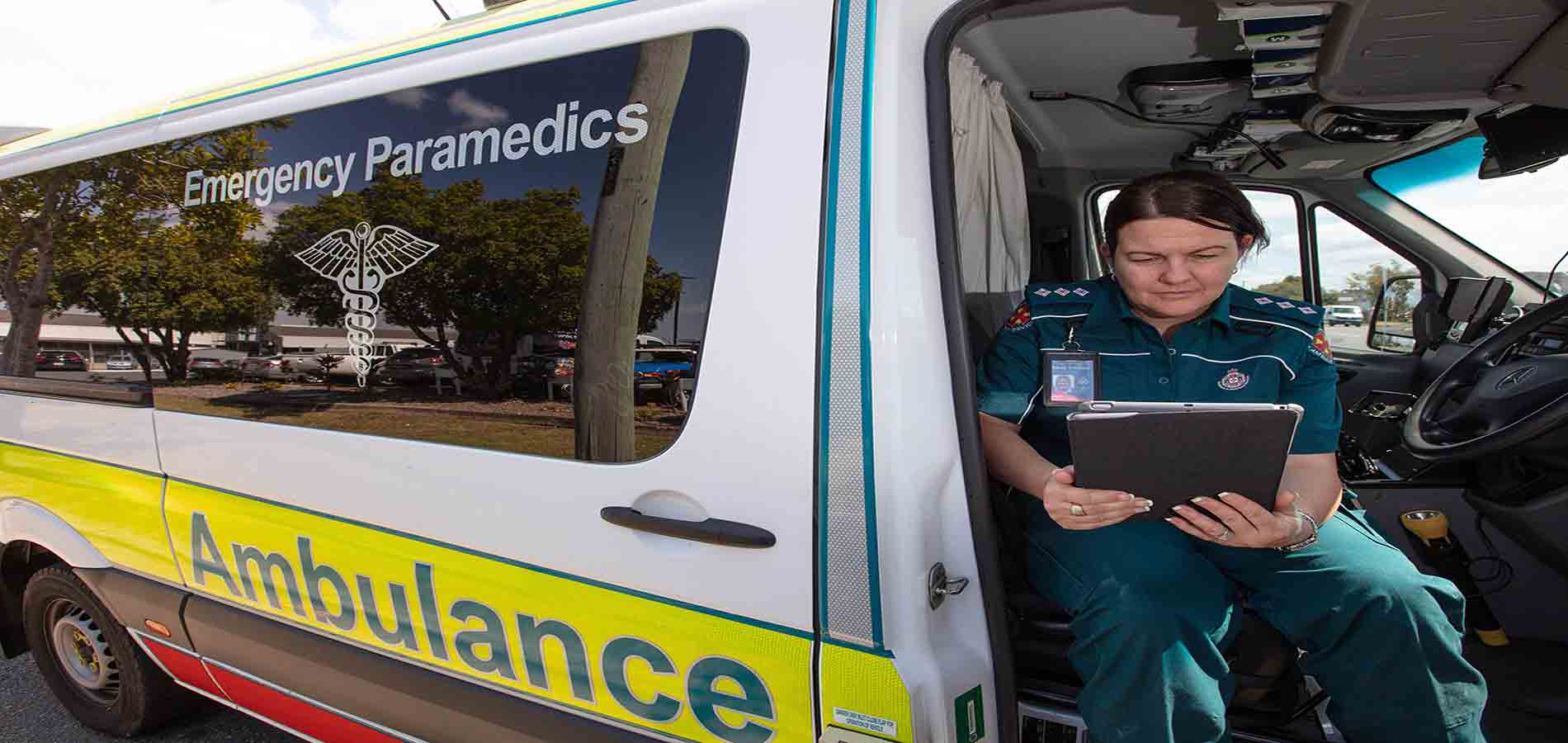
So armed with those business requirements, you worked with Microsoft to design a solution able to fulfil those needs?
CP: Eventually 670 – 690 officers would be using it at any point in time so we tested it internally within the group first to ensure that the bigger capability for real-time video conferencing worked, that the rostering worked as well.
We had already deployed Office 365, so turning on Microsoft Teams made perfect sense –our people were already comfortable using Microsoft technologies.
Once we were happy with Teams and the robustness and redundancy, we hosted a workshop with the commanders that looked after each of the venues. We ran through a workshop with them, focusing on how to install Teams and provided a user guide.
Then we did a ‘train the trainer’ program, training the commanders, with the commanders later training their fellow officers. There was a testing phase prior to the Games, so that we were comfortable and confident with how this worked in the field.
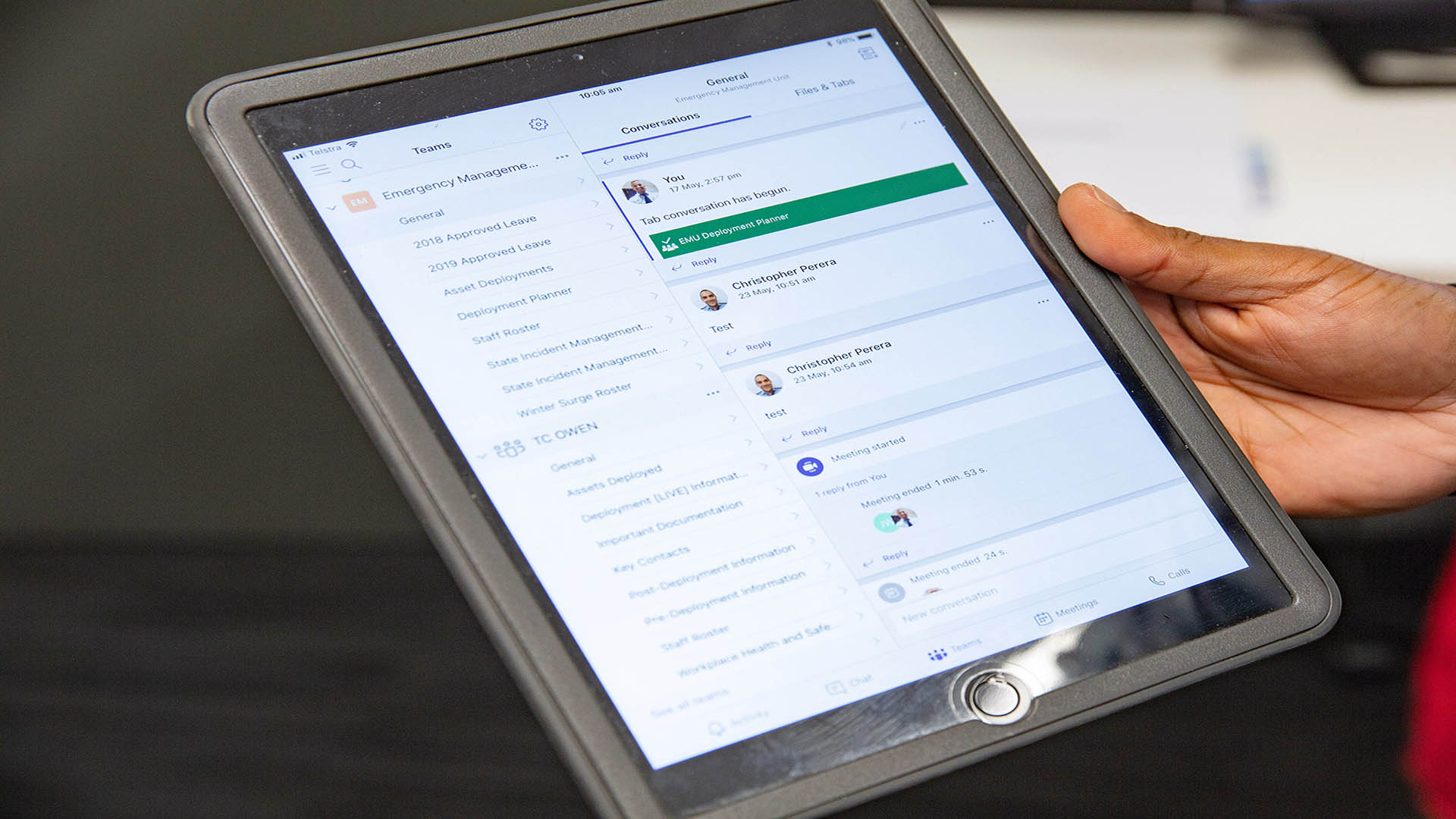
And what was the impact for QAS during the Games?
CP: It was great to go to one source of truth for all the information, accommodation, meals and staff rostering. And to document who had done the training, who hadn’t done the training and to provide live support to officers.
Each Commonwealth Games venue had a specific roster, and individual officers had to do an induction course before they were deployed to the event. We ran a 24-hour support network in the Geebung Event Support Hub to support our staff in real-time and in that hub, we were able to communicate with each officer who posed questions via Teams. It was a great way to communicate in a transparent and well-timed manner with everyone involved with the Games. Prior to this, the only real communication we had was via email, through a landline or through a mobile phone, but Teams allowed us to have records of all the communication – as well as be able to do it in real time.
MF: We had 603 people complete their induction requirements through Teams, using Sway as an improved platform. Of the people who were actually rostered on at the Games, 97 per cent were successfully trained that way.
Teams was also able to handle rapid change.
The Commonwealth Games was a dynamic, complex, and ever-changing beast, where we were still making amendments to our operational plans four days into the Games. So, the Commonwealth Games happened from 4 – 15 April 2018, but prior to that, the deployment for us was a month long, not a fortnight. Prior to that, we were in venues for staff training and familiarisation. But we were still making operational changes to our plans on the 6th and the 7th of April 2018.
So what Teams enabled us to do then, was to load up those changes in real-time. And the paramedic who was sitting inside that venue at that moment, had access to that information on their tablet. And having the channels aligned with the venues, meant we could focus on those people. Everybody rostered to this venue, could be pinned and they could then know that something had now changed. We have never had the ability to do that prior to Teams.
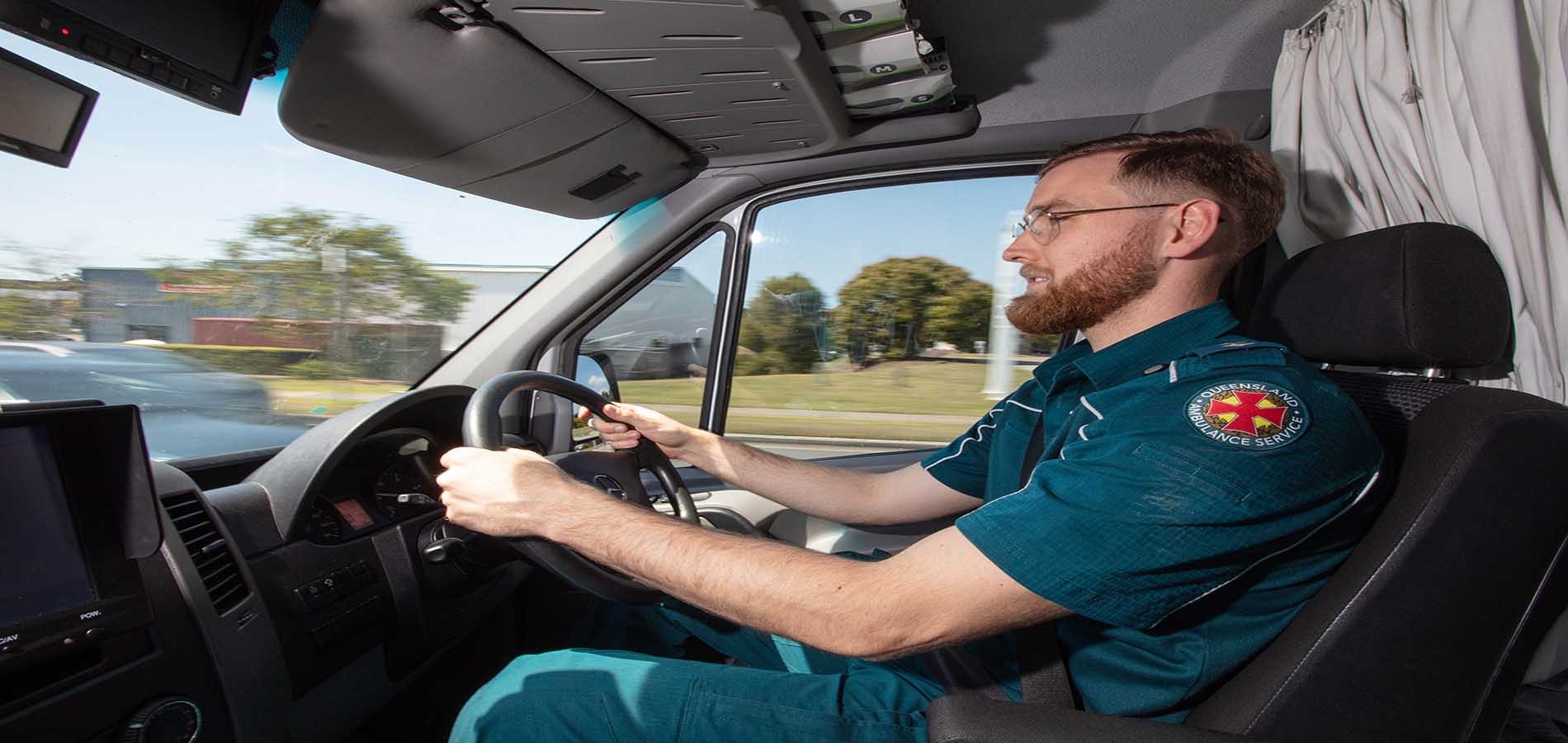
Teams also supported other interactions I gather?
CP: Absolutely – each venue had its own channel in Teams, so for example cycling, power lifting, swimming. We had more than 600 people loaded into Teams. Also, the Games management team could then communicate with each individual person, by releasing communiqués. All communiqués were released through Teams, all educational aspects were released through Teams, so was rostering, where staff were going to be fed, where they were going to be accommodated, where they were going to be picked up – it was all done through this one medium, Teams.
MF: We had our Assistant Commissioner of Commonwealth Games using it to communicate to staff on the ground. You could see that this is how we’re going to move forward. This is how staff will see their roster, and complete their training, so it worked for staff as well. Because they can do it wherever they are located, at any time of the day/night, rather than having to do it on their days off.
So, Teams really becomes the central nervous system?
CP: That’s right, so not only was there venue information like where to pick up their people, where to pick up the pharmaceuticals, where to rendezvous for the buses, there was also generic information such as the media guidelines, code of conduct, links to the Gold Coast 2018 traffic information, real-time traffic information, weather and more.
CS: A SharePoint site was used for general information in the lead-up to the Commonwealth Games as well.
What was the impact of this solution?
CP: In terms of its legacy, I’ve had Officers-in-Charge come to me for help to support and set up peer Teams. For example, I met with my equivalent in the Gold Coast area network and we set up a Team for them as well, so they can deploy and disseminate information for their deployments, for example for Schoolies, GC 600, etc.
CS: Teams demonstrates an effective and functional solution which can meet a broad range of organisational communication needs, now and into the future. It provides a sound platform for real-time communication. This product provides an easily-accessible, consolidated communication hub enabling the minimisation of phone calls and emails. This is of benefit particularly in the QAS environment where a real-time consolidated communication capability is essential. Teams capably supported this environment.
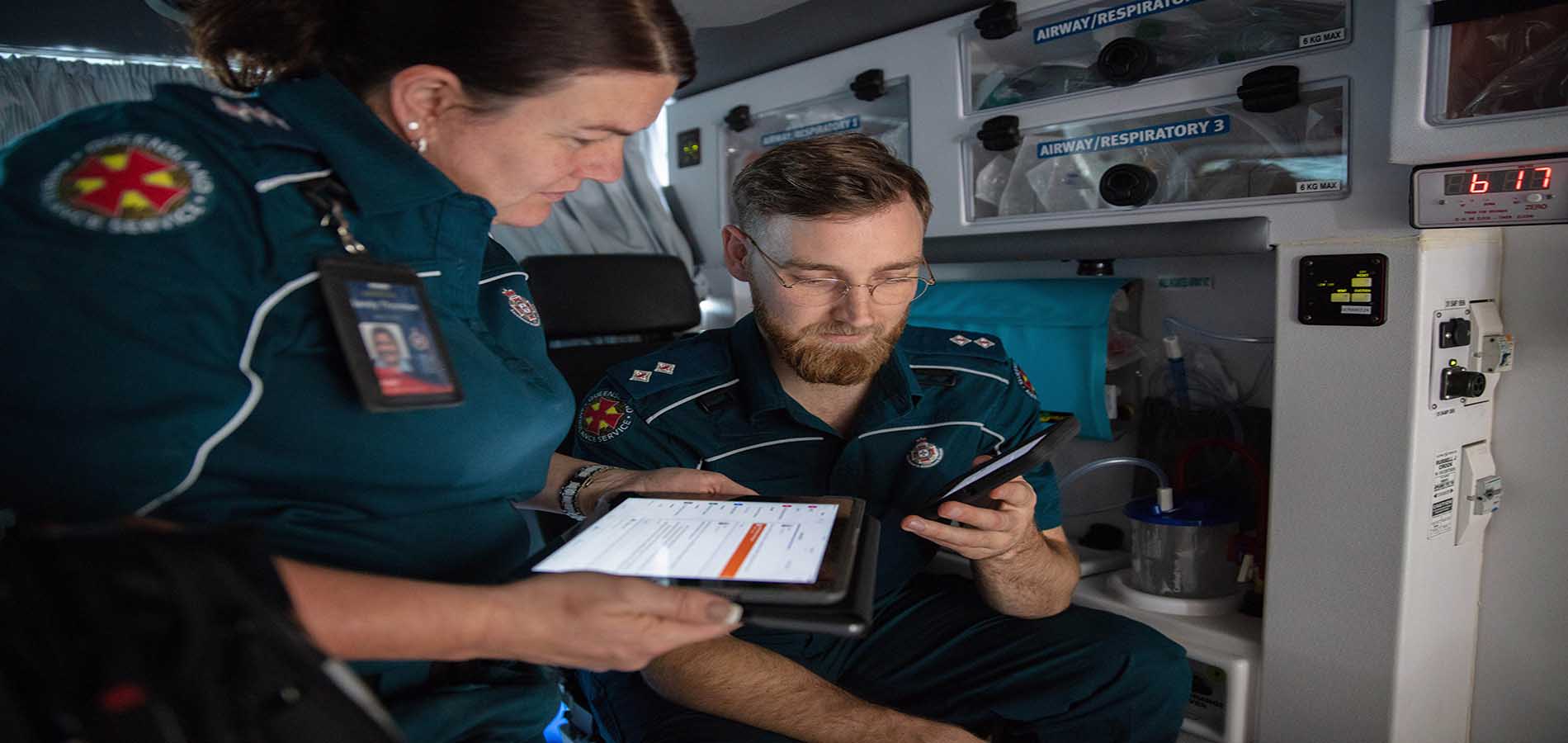
What’s next on your transformation agenda?
MF: My intent will be to work with Christine, continuing with Teams within the Emergency Management Unit to have a platform that is ready for our officers in deploying to disasters and planned events. Obviously smaller than the Commonwealth Games, but where our people are delivering no less valuable services, so having the ability to support their needs and disseminate situational information in real-time is still just as important.
I’m advocating Microsoft Teams for emergency management. We don’t need to build an app now, we know Teams works for us. You know, it had an excellent uptake. Feedback was great. You could see it working in real-time. Someone would raise an issue in one of the venues, and they became self-managing.
And it could be monitored 24 hours, the ability to have access from anywhere, gave flexibility for the supervisors to respond from anywhere across the Commonwealth Games footprint. I know in my accommodation, I responded to things at 10:00pm. So, the staff were getting a response instantly which is important in a 24 hour a day operation.
So therefore, staff felt valued, like they were heard, and they felt someone was doing something for them. So, feedback from a union perspective and from staff was that it was a great platform to help with those issues, which may previously have been moved to a lower priority on a task list during an operation, but to the paramedic standing on the side of the road at 1:00am, trying to establish where the information is, that’s quite significant to them.
And we can help them straight away with Teams.





